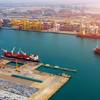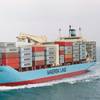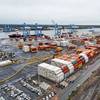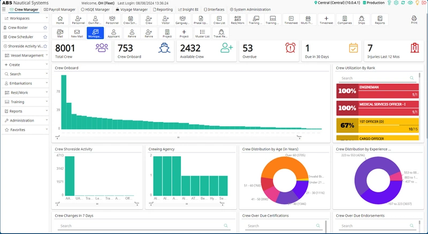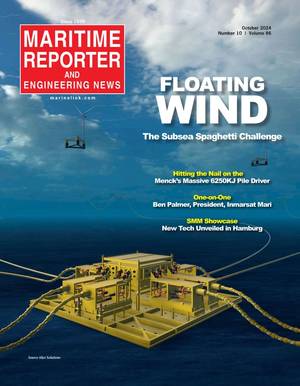Canpotex to Invest at Port of Portland Terminal
Portland is already the largest gateway on the U.S. West Coast for bulk mineral exports, and that gateway is about to get more efficient and diversified with the expansion of the Canpotex Limited (Canpotex) potash export facility at the Port of Portland's marine Terminal 5 in the Rivergate Industrial District.
Canpotex, through its wholly owned subsidiary, Portland Bulk Terminals, L.L.C. (PBT), is investing up to $140 million in new equipment and infrastructure to improve the efficiency of its shiploading operations and the management of Canpotex’s specialty white potash products. A new shiploader, improved control system technology and an upgraded conveyance system will enable shorter turnaround times for Canpotex trains and ships at PBT. A new storage building will allow the potash exporter to better manage its specialty grade products at the terminal.
“This investment is great for Canpotex and the Port because it improves the speed and quality of our operations at the terminal. But it’s not just our company that benefits; we are doing our part to try to build efficiency into the transportation system in the Pacific Northwest corridor,” said Canpotex’s Steve Dechka, president and chief executive officer.
After significant collaboration and discussion with key stakeholders, Port staff and Portland Development Commission (PDC) personnel proposed an enterprise zone expansion to include the PBT facility. The expanded enterprise zone was approved unanimously by Portland City Council last December. The company’s plans began to materialize shortly thereafter and were officially approved at the October 8 Port Commission meeting.
Canpotex is a joint venture among three Province of Saskatchewan, Canada potash producers: Agrium, Mosaic and PotashCorp. Acting as an international marketing and logistics entity, Canpotex will continue to seek further capacity and efficiency enhancements across its supply chain as export markets allow. In addition to PBT, Canpotex has terminal operations at Neptune Terminal in Vancouver, B.C.
Potash, also known as potassium chloride, helps increase crop yields as a mineral nutrient used in fertilizer applications. More than two million metric tons of Saskatchewan potash is exported through Portland annually to international markets including Australia, Brazil, China, Japan, Korea and Taiwan.
“Along with grain and agricultural exports, potash is yet another cargo type handled through our port that helps feed the world,” said Bill Wyatt, executive director for the Port of Portland. “Canpotex has been a great tenant for nearly two decades, and we are excited that this world-class shipper’s roots in Portland are growing even deeper with this expansion.”
As a result of a long-term lease extension, Canpotex expects to increase its tonnage incrementally in the coming years. The construction will prompt private investment with local sourcing of materials, yielding increased tax revenue, new construction jobs and long-term employment.
“This is yet another prime example of the influx of private investments in marine industrial facilities on our river system,” said Wyatt. “Since completion of the Columbia River channel deepening project in 2010, companies have initiated and committed investments totaling more than $866 million in Portland facilities and approximately $3.7 billion along the river system to date.”
“Attracting this significant foreign direct investment relied on strong collaboration between PDC, the city, the Port and Canpotex,” said Patrick Quinton, executive director of the PDC. “We’re very pleased to be able to use the Enterprise Zone program to build Portland’s exports and bring considerable community benefits to North and Northeast Portland.”



